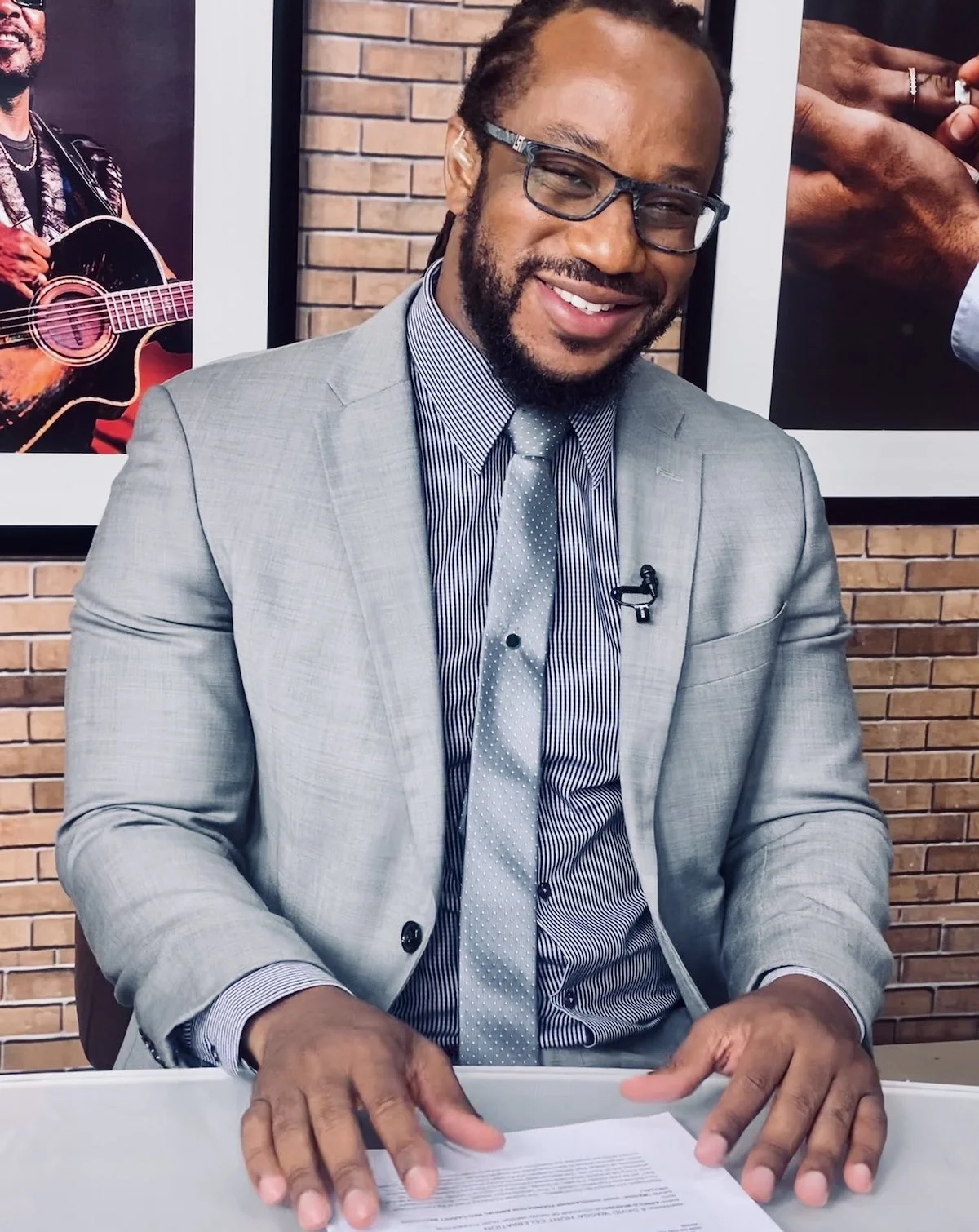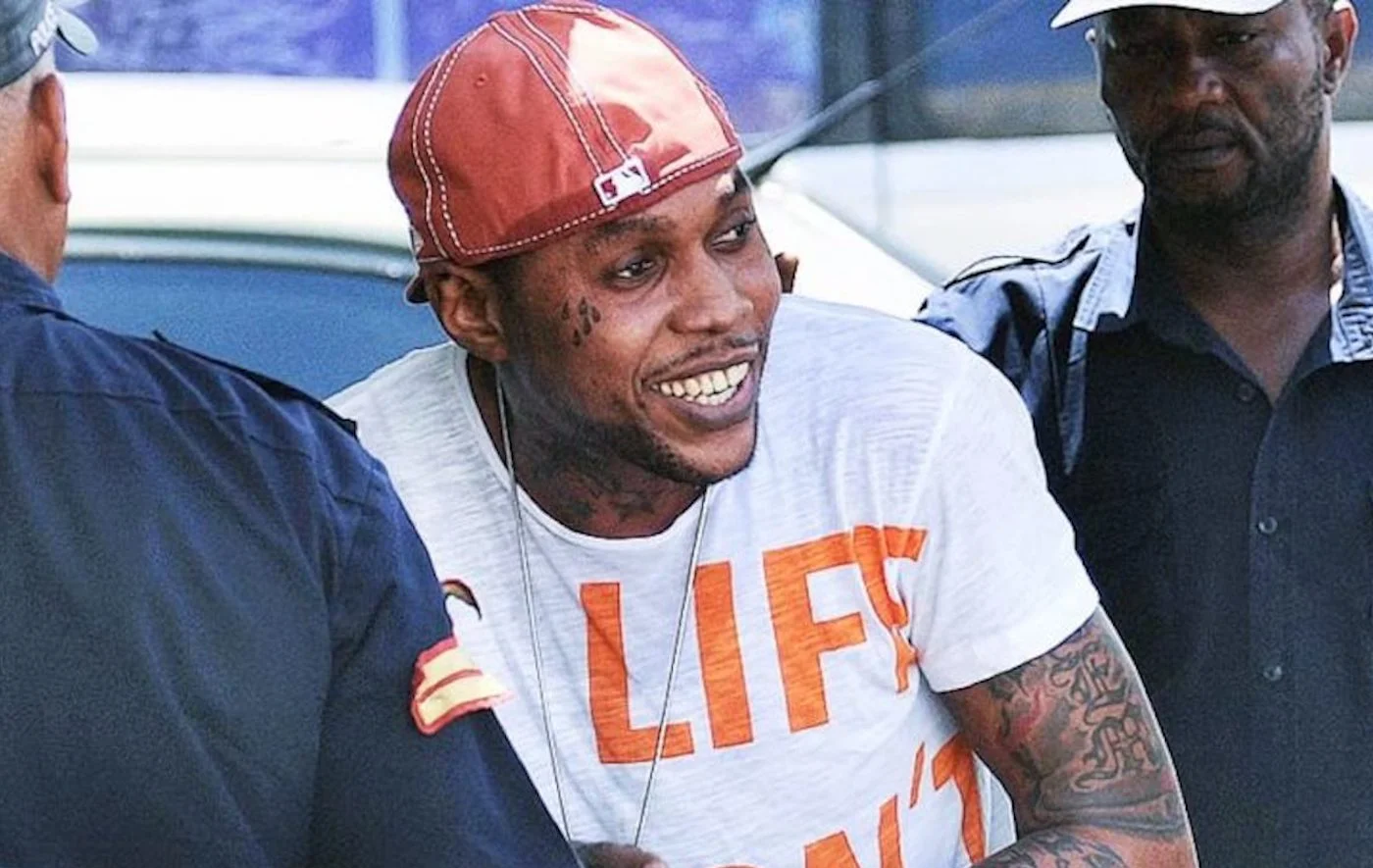Vybz Kartel’s lawyer says the artiste has been removed from solitary confinement. This comes following an injunction filed by Isat Buchanan after the artiste was placed in solitary confinement on May 23.
In a new interview, Buchanan revealed that when he appeared in court on June 12 for a hearing on the injunction to restrain the Department of Correctional Services, he was told that the artiste was no longer in solitary confinement.
The matter was adjourned to June 26. In a new interview with TVJ’s Anthony Miller, the attorney revealed that Vybz Kartel has been receiving medical treatment from his private physician, not a medical doctor hired by the Correctional Services.
Additionally, he also shares for the first time details about Kartel’s solitary confinement and what he says is the inhumane treatment of the artiste as he was held in a “brick oven” due to the age of the prison building while the hygiene conditions are cruel and unusual punishment.
“He would have to use a bucket and he would have to wash in that cell?” Miller is heard asking Buchanan.
Isat Buchanan responds, “He would have to do what he’s doing with the 23 hours. If he uses the bathroom, he’s stuck with his excrements if [that] is the word until he has the discretion of DCS to release him to remove that.”
It seems that the artiste’s recent Fox5 exclusives with Lisa Evers landed him in hot water. The artiste appeared twice on Fox News over the last six months, one of those being where he discussed his relationship with his fiancée, Sidem Ozturk.
Buchanan, who refers to Kartel’s Fox News interview as an “excellent one,” does not address the allegation that his client might have broken the rules by having a cell phone, but he does raise a valid question as to how Kartel or any other inmate might have been able to receive a cellphone since the only people who have access to outside of the facility is DCS officers working at the facility.
“The issue that is to be resolved is how the phone gets there and I want to make this emphatically clear, I care zero about phones in prison,” he adds.

Elsewhere in the interview, the attorney raises the concern that there are no phones within the jail itself where inmates can make calls to their family to maintain their family life, a constitutional right, the breach of which, unfortunately, is fueling contraband in jail.
“That family life is what you must protect by having phones on the wall that you can record phones on the wall, that you can allow communication. In the absence of that, this will be the result, Kartel is not the first or last inmate that will have a cell phone,” he said.
Despite his position, Buchanan maintains that if the inmate is found with a cell phone or contraband, then punishment is prescribed under the Corrections Act. However, that Act says solitary confinement cannot be prolonged beyond 15 days, and even so, when dealing with a sickly inmate, other considerations must be made, Buchanan says.
In the meantime, Urban Islandz obtained a response filed by the Minister of National Security and Attorney General on June 12 reveals that the artiste was only held in solitary confinement for eight (8) days.
An affidavit deponed by Leslie Campbell, the Superintendent in charge of the Tower Street Adult Correctional Centre says that Kartel was placed in solitary confinement for that period because he was found in the first instance with a cell phone on May 19 and again on May 22.
After being placed in solitary from May 22 to May 30, the restrictions were lifted, and since May 31, Kartel has been enjoying the privileges of a guest of the state as other inmates, the Superintendent said.
The affidavit denied that the artiste did not have proper bedding and that he had a fan for ventilation. It also mentions that the Medical Officer at the facility saw Kartel on June 7, who acknowledged he was “ill [but] he is not critical and the condition he is suffering from is not life-threatening.”
As expected, the affidavit requested that the relief sought by Kartel be denied.
